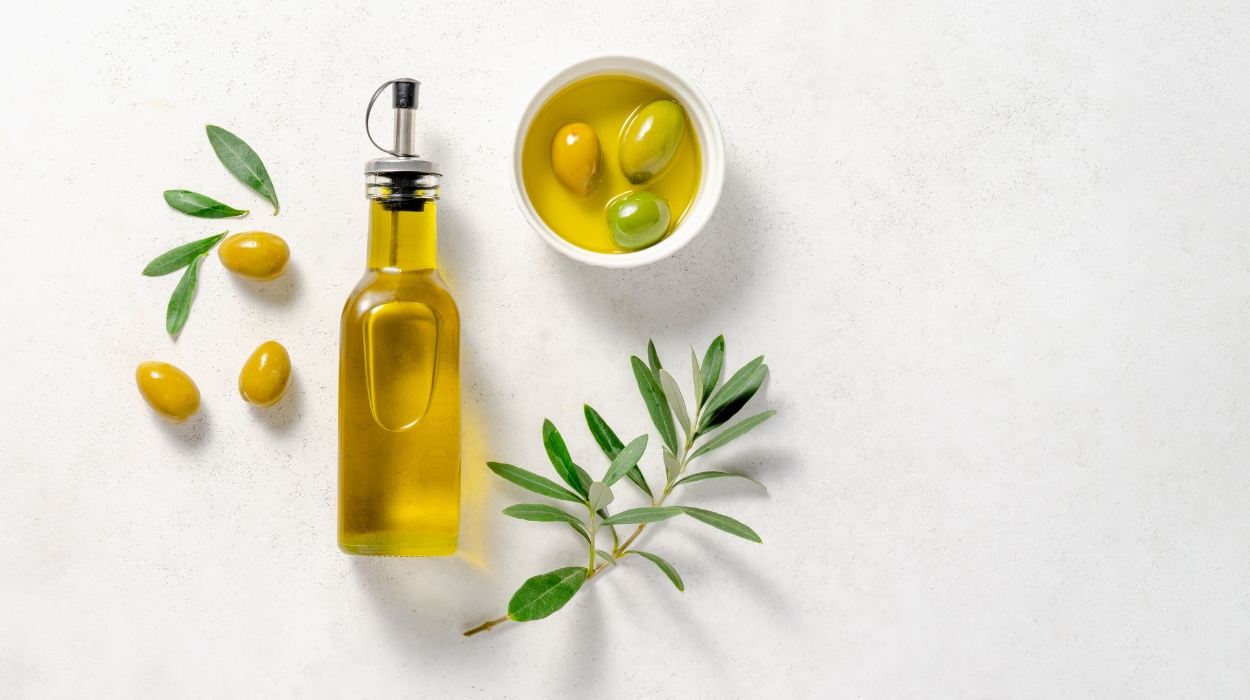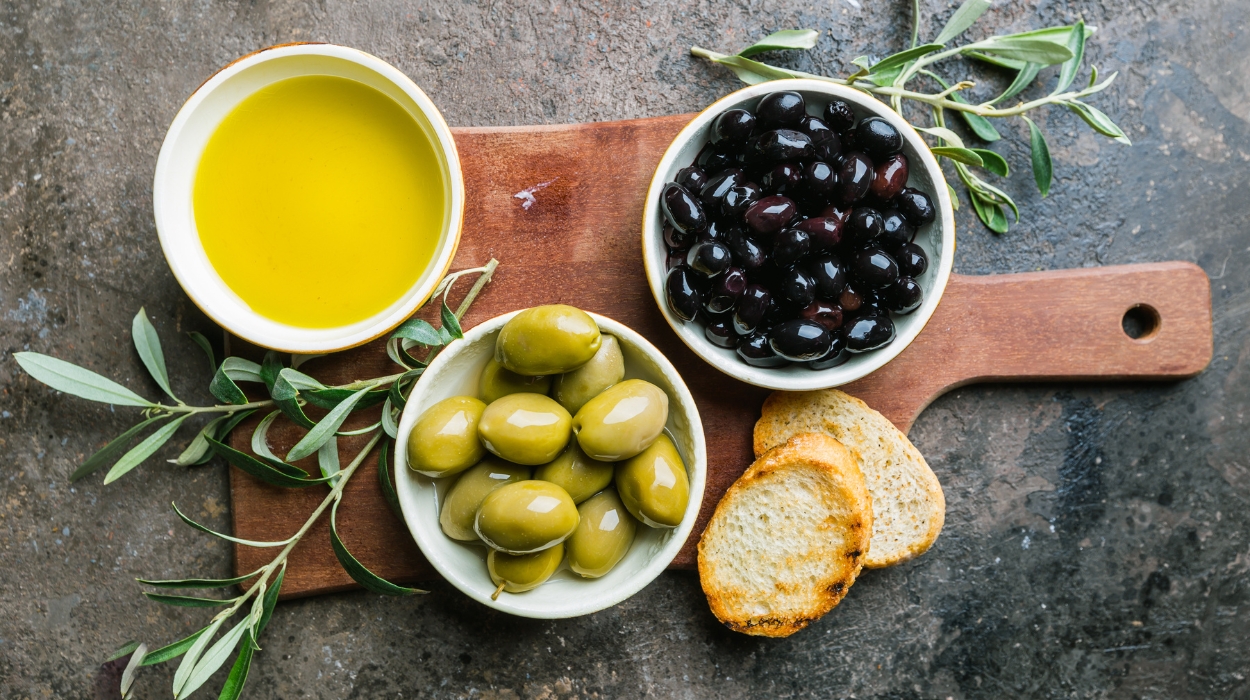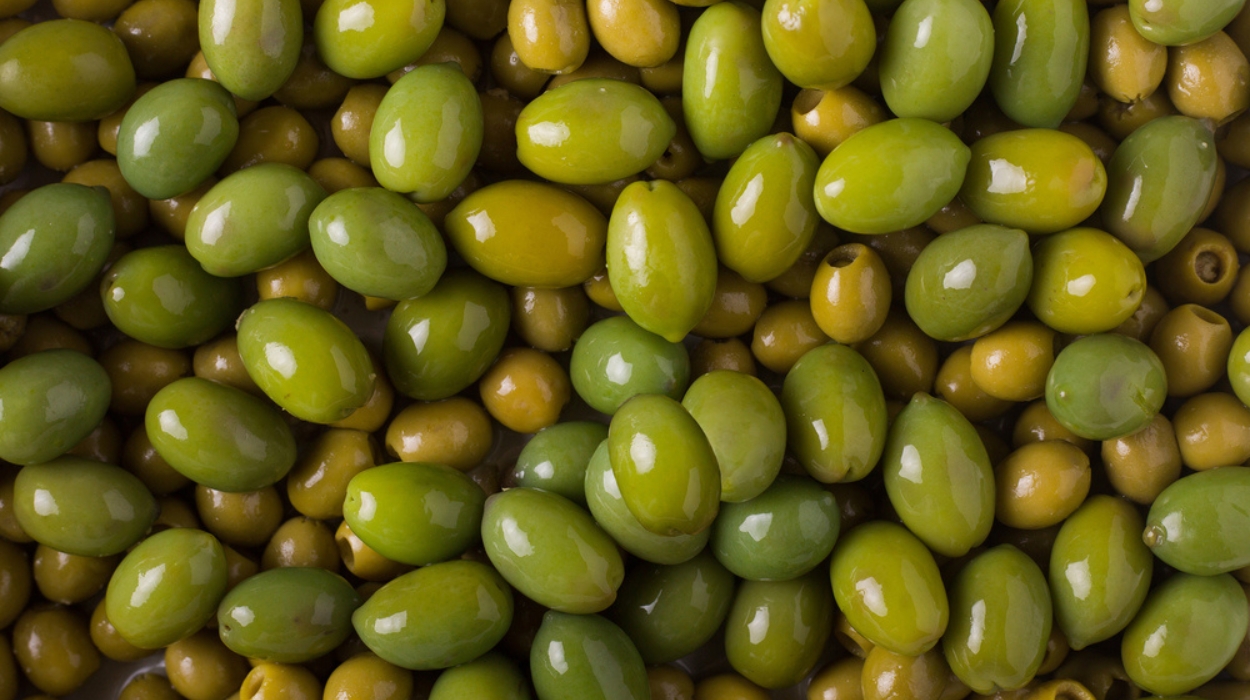The juicy olive that graces our dining tables today was first cultivated[1] around 8,000 years ago in the Eastern Mediterranean. Many believe that this ancient fruit may also help prevent and manage obesity. But is there evidence that olives are good for weight loss, or is it just another fad with no factual basis?
We will answer the question, “Are olives good for weight loss?” We will explore the nutritional characteristics of olives that make them friend rather than foe in the battle against the bulge. We also address the limits of their weight loss properties.
You will also learn about the health benefits of olives and how to include them in your diet to lose weight.
Can Olives Help You Lose Weight?
Yes. When eaten in moderation and combined with a sensible diet that is not overloaded with calories or refined carbohydrates like white bread and candy, olives have beneficial nutrients that can aid you in your quest to lose a relatively small amount of weight.
Are Olives Good For Weight Loss?

You’re probably wondering, “Why are olives good for you?” Well, olives contain a high amount of healthy, unsaturated fats and no sugar. But with olives’ high-fat content, are olives fattening?
In short, no. They contain healthy fats— these characteristics make them helpful in anyone’s weight loss journey. But it is important to be realistic about what any one food can do.
The U.S. Department of Agriculture recommends[2] that adult females consume between 1,600 and 2,400 calories per day. Younger and more physically active females skew toward the upper end of this scale. For adult men, this ranges from 2,200 to 3,000 daily calories.
There is a good reason for these recommendations. Our bodies burn the calories we consume to create energy. The body then uses this energy to keep itself alive and to fuel a range of physical activities.
However, if someone regularly eats more daily calories than their body uses, this causes weight gain. Meaning the body stores the calories as fat rather than burning them as a source of energy. This leads to weight gain in the long run.
No single food can save us from obesity if a person continually eats more calories than they use. Fruit and vegetable supplements are not an exception, and neither are olives. Nevertheless, if you eat sensibly with a normal caloric intake, olives can help with your weight loss goals.
Benefits Of Olives For Weight Loss
Are you looking for fruits for weight loss? These little fruits have properties that can promote a small amount of weight loss. The list of potential benefits is impressive, but it’s important to remember the effects olives have are modest.
Healthy Monounsaturated Fat
Olives are particularly rich in monounsaturated fat, which is the only type of fat that can directly contribute to weight loss. This makes them a decent fat-burning supplement.
Researchers looked at the impact of two types of dietary fat to determine their impact on body characteristics. A study compared women who were obese eating excess polyunsaturated fats, to those eating excess monounsaturated fats and a control group who ate normally. Results showed those who ate excess monounsaturated fats lost an average of 4.2 pounds.[3] This group also lost body fat, waist inches, and their body mass index dropped.
Both black and green olives along with extracts such as olive oil are all rich in these healthy fats. These are also staples in the Mediterranean diet, which has also proven to assist with up to 4.5 pounds of weight loss[4] and fat loss.
Low-Calorie Density
Olives have remarkably low-calorie density, which makes them a much healthier snack than many other foods. Calorie density is defined as the ratio of calories per unit of weight in grams. For example, while a 100-gram portion of white bread contains 238 calories,[5] 100 grams of olives hold only 116 calories.[6]
This means that you can eat around 15 olives as a snack without adding too many calories to your daily intake. As such, it can prevent you from putting on weight that would occur following consumption of more calorie-dense foods.
No Sugar
Sugars and starches are low in nutrients and high in calories, making them some of the chief culprits in the obesity epidemic. According to the U.S. Department of Agriculture, olives carry no[6] sugar at all. As such, they offer your body nutrients without harmful empty calories.
May Promote Satiety
Research shows that foods with low calorie density help with satiety,[7] or a sense of fullness. But are olives included in this? Evidence suggests they are.
A 2019 study[8] established that a satiety hormone called ghrelin and gastric inhibitory polypeptides were higher after a meal loaded with extra virgin olive oil. This type of olive oil is high in monounsaturated fatty acids.
Consequently, olives can make you eat less after enjoying them. They can even be a good fruit for weight loss, especially when combined with green powder that helps with digestion.
Other Health Benefits Of Olives

Potential weight loss is not the only reason you should eat these little fruits, however. There are other reasons why olives are good for you, such as:
- Olives carry plenty of antioxidants, which are chemicals that fight[9] harmful free radicals, prevent their damage, and combat the premature aging they cause. Therefore, olives may help prevent cancer in some individuals.
- They help manage inflammation,[10] which is responsible for obesity, heart disease, arthritis, and many other chronic conditions.
- They protect against heart disease[11] and stroke.[12]
- Those who consume olives score higher[13] on cognitive tests than those who avoid fat or eat other types of fat.
- The risk of developing diabetes is much lower[14] in people who eat olives.
How To Use Olive Oil To Lose Weight In Your Diet
Even though olives have some weight loss properties, you should still keep in mind that oil is a concentrated form of a huge amount of fat. One cup[15] of olive oil contains almost 2,000 calories, which equals approximately your whole day’s food intake! Accordingly, it can cause you to put on weight if you use large amounts of it.
Since one tablespoon[15] holds only 124 calories, one or two such servings per day should be your maximum. You can enjoy that tablespoon in any of the following ways:
- Mix it with balsamic vinegar or lemon juice in a salad dressing.
- Sauté onions, garlic, and other vegetables in it.
- Drizzle some over your pasta.
- Brush on your meat or fish before grilling.
- Spray some on your vegetables before roasting them to add crispness and flavor.
- Drizzle it over popcorn.
Conclusion
Olives offer more than a culinary delight. They could be an ally in the fight against obesity when combined with other healthy foods and lifestyle practices. Their richness in monounsaturated fats, low-calorie density, lack of sugar, and potential ability to promote satiety contribute to modest weight reduction. These benefits can be further maximized as part of a balanced diet that follows all recommended calorie intake guidelines.
Frequently Asked Questions
No, olives are relatively low in calories. A small serving (approximately ten olives) contains around 116 calories, making them a useful snack or salad ingredient. The equivalent in oil is one tablespoon of olive oil containing 124 calories.
Eating just five olives daily is ideal for seeing benefits. Although a beneficial addition to a weight loss plan, they should be part of a broader strategy incorporating moderation in calorie and refined carbohydrate intake.
Yes. Many scientific studies have discovered that it can reduce waist size and visceral fat. Visceral fat is especially harmful since it can accumulate around your stomach, liver, pancreas, and intestines, impeding organ function.
Black olives have a similar nutritional profile to green olives, so they can both improve weight loss. However, pickling, marinating, or storing olives in oil may cause weight gain, as this increases their salt, additive, and preservative content.
 Evidence Based
Evidence Based